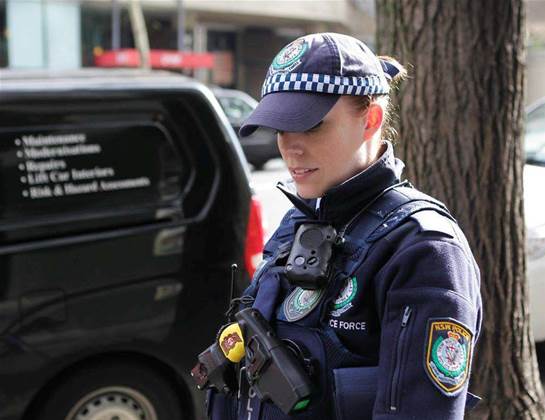The New York City police department has unveiled the body-worn cameras it plans to roll out to officers in the near future in an attempt to defuse confrontations between police and members of the public.

The devices will be tested by just 60 of the city's 35,000 officers under a pilot program.
The NYPD will test two models of camera. The first is made by Taser International, best known for its eponymous stun guns. The second is from Vievu, a Seattle-based company specialising in wearable cameras.
The technology is already in use across a number of other smaller police districts in the US, and is also being gradually rolled out across NSW.
The NSW Police Force has recieved $4 million to rollout a undisclosed number of the cameras, which its CIO Chris Robson estimates could produce an addition petabyte of video data every year that his team will need to deal with.
“We are going to have a lot of fun around the information management aspects of body worn video – let alone the more prosaic problem of how am I going to get this stuff from the field to a central repository with as few moving parts as possible," he said back in June.
This week New York police chief Bill Bratton demonstrated the new technology by playing a short video of what a recorded interaction might look like.
"I'm going to issue you a summons for that red light, OK?" the unseen officer can be heard politely telling the driver he has just pulled over.
"Give me a second, OK?" the officer adds in a reassuring voice, which the driver appears to think is fair enough. "I'll be right back."
It is the sort of genteel encounter between an officer and a civilian that Bratton, the city's police commissioner since January, said he hoped would become more common if both parties know they are being recorded.
Other departments already using the cameras have found they tend to bring out the best behavior on both sides and "de-escalate" encounters with police, Bratton said.
"I think clearly the officer, knowing they are being recorded, will affect the behavior of the officer in a good way," Bratton said.
The death of Michael Brown, the unarmed Missouri teenager shot in the street by a police officer in disputed circumstances last month, has brought renewed attention to the technology. The officer who shot Brown was not wearing a camera.
Bratton said the cameras would provide a more objective record of a police encounter than contradictory hearsay.
Bratton has said he is a fan of the technology and would have launched tests even if a federal judge had not ordered the department to do so last year as part of a ruling that found the city's use of so-called stop-and-frisk tactics unconstitutional.


.png&h=140&w=231&c=1&s=0)

_(22).jpg&h=140&w=231&c=1&s=0)




_(26).jpg&w=100&c=1&s=0)

 iTnews Executive Retreat - Security Leaders Edition
iTnews Executive Retreat - Security Leaders Edition











_(1).jpg&h=140&w=231&c=1&s=0)



